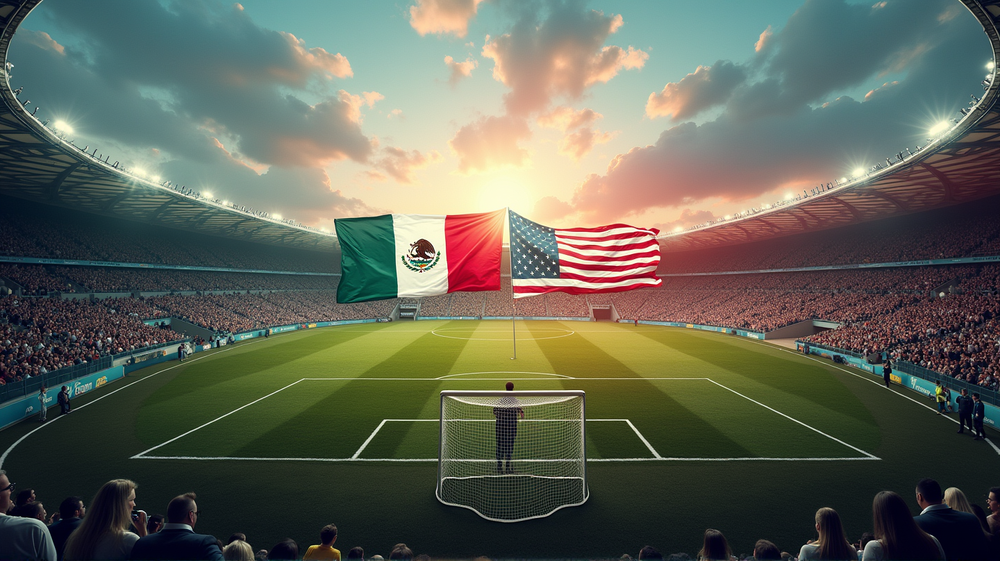World Cup 2026: Political Tensions and Challenges Threaten Event
The anticipation for the 2026 World Cup was palpable, as fans around the globe looked forward to the spectacle set to unfold across sixteen bustling cities in North America. But now, with just over a year before the opening whistle, the grand tournament is fraught with uncertainties and diplomatic strains. The unity that once symbolized a historic collaboration among the United States, Mexico, and Canada seems to be under threat, casting a shadow over what was intended to be a celebration of sport and camaraderie.
Rising Tensions and the Impact on Enthusiasts
From the moment the joint hosting bid was announced, fans had high hopes for the unprecedented three-nation tournament. English supporters, in particular, were eager for a triumphant campaign under the guidance of their new manager, with bookmakers like NetBet ranking England as a top contender. Yet, as international relations grow increasingly tense, the thrill of experiencing the games on North American soil is being overshadowed by concerns over visa complications and strained border crossings.
Political Discord Between Allies
The return of a familiar face to the U.S. presidency has only added fuel to the fire. Former President Donald Trump, notorious for stoking tensions with Mexico, now hints at policies that could spell trouble for cross-border collaboration. A continent-wide event that relies on seamless cooperation risks unraveling amid ambitious political agendas and a history steeped in rhetoric and tariffs.
Logistical Labyrinth: The True Cost of Division
The logistical challenges of hosting such a colossal event are compounded by the very real prospect of half-empty stadiums, as visa issues loom large for qualifying nations including Turkey and Colombia. Embassies in these countries are already swamped, with wait times threatening to snuff out the dreams of countless fans hoping to witness football’s grandest stage firsthand.
Historical Precedents and Lessons Unlearned
FIFA’s last dual-hosting arrangement between Japan and South Korea in 2002 serves as a cautionary tale. Despite their geographical proximity and well-established transport systems, the two countries encountered their share of disputes, over ticket revenues and more, all the while maintaining generally positive relations. The current political climate suggests an even more daunting path ahead for North American counterparts.
Economic Incentives as the Last Bastion of Hope
FIFA, in desperate bids to salvage the 2026 World Cup, aims to woo Trump with the promise of economic boons that could arise from hosting the global event. According to Descrier, the organization continues its efforts to liaise with U.S. authorities, touting a potential windfall from international goodwill and economic activity. Whether this fiscal carrot can overcome the political stick is a question only time will answer.
As the clock ticks down, the world watches with bated breath. Will the spectacle of football bring nations together as planned, or will diplomatic discord lead to an event marred by empty seats and missed opportunities?




